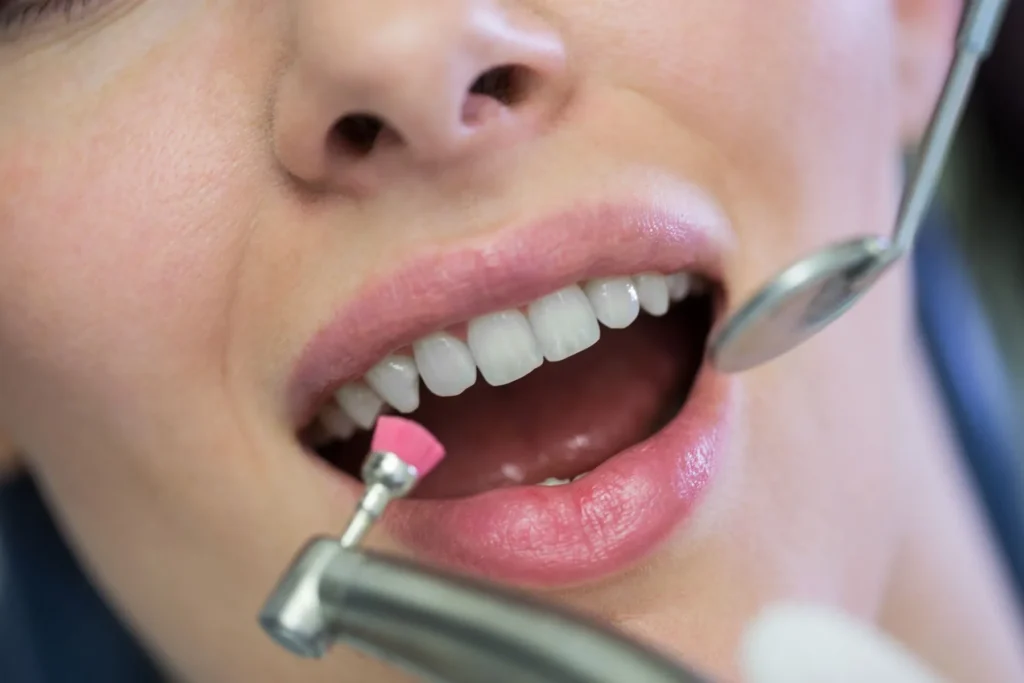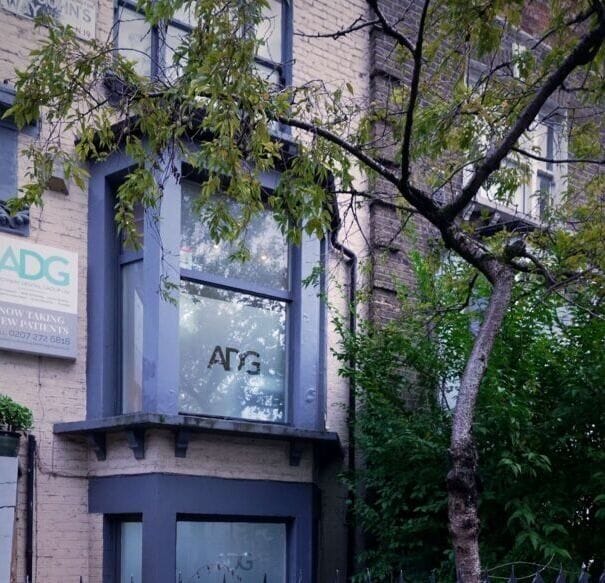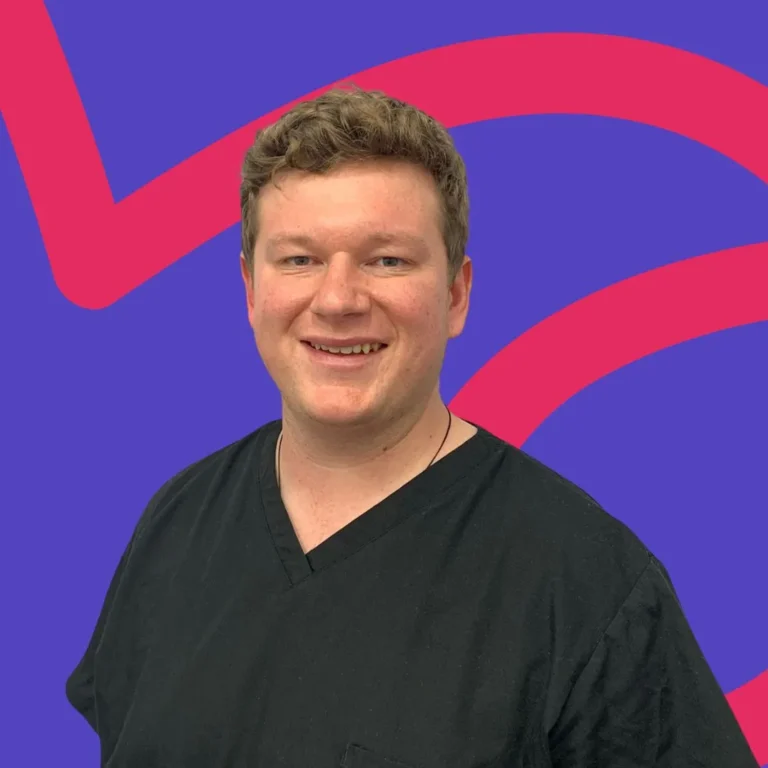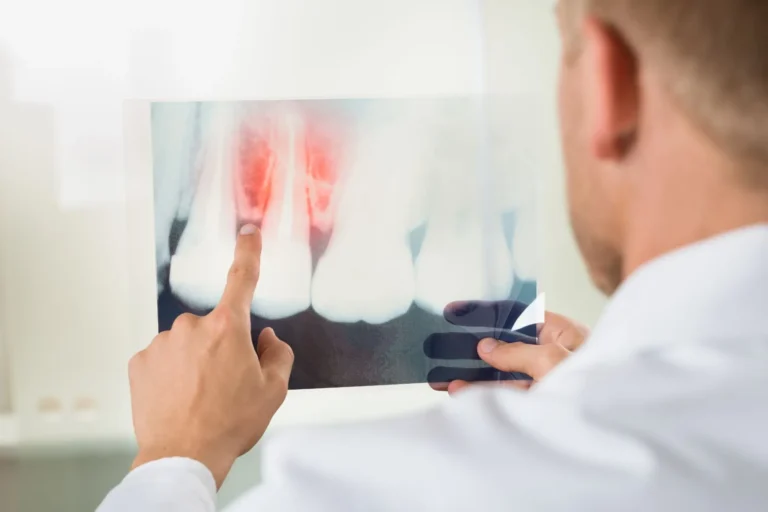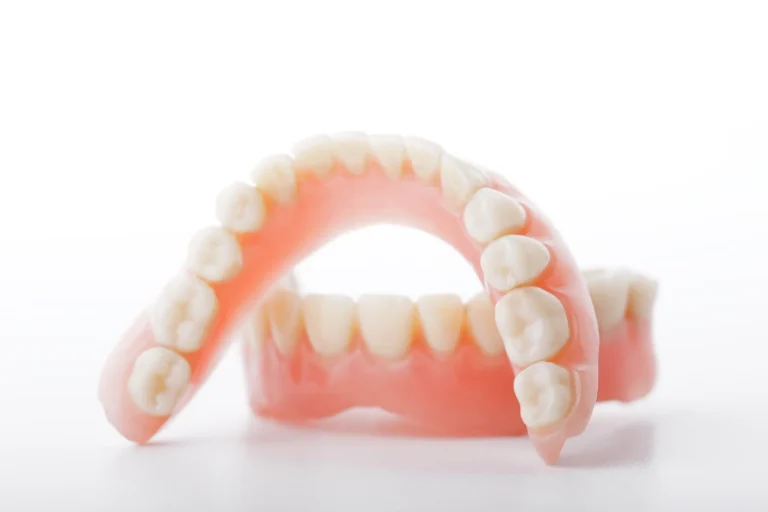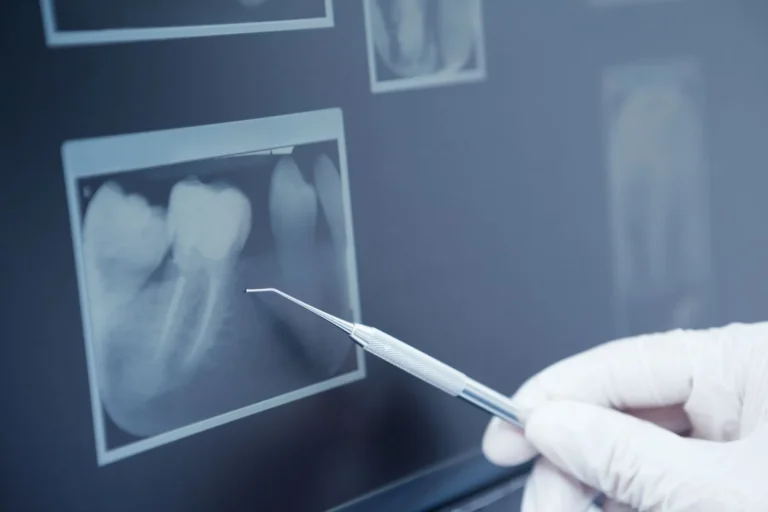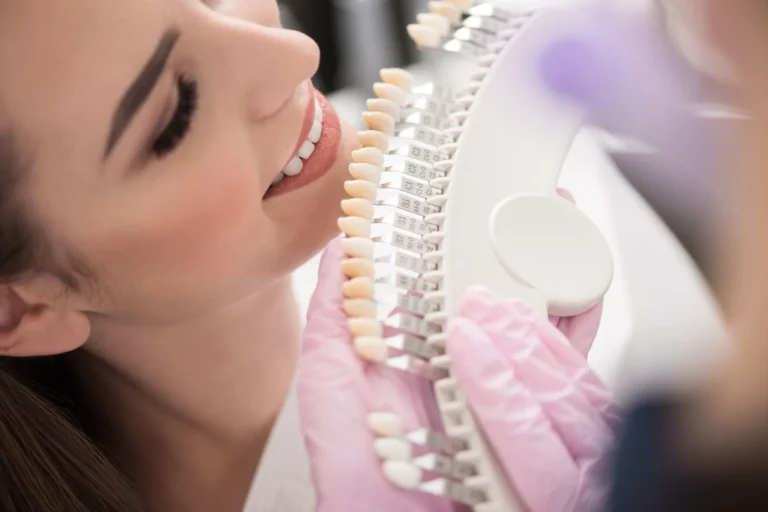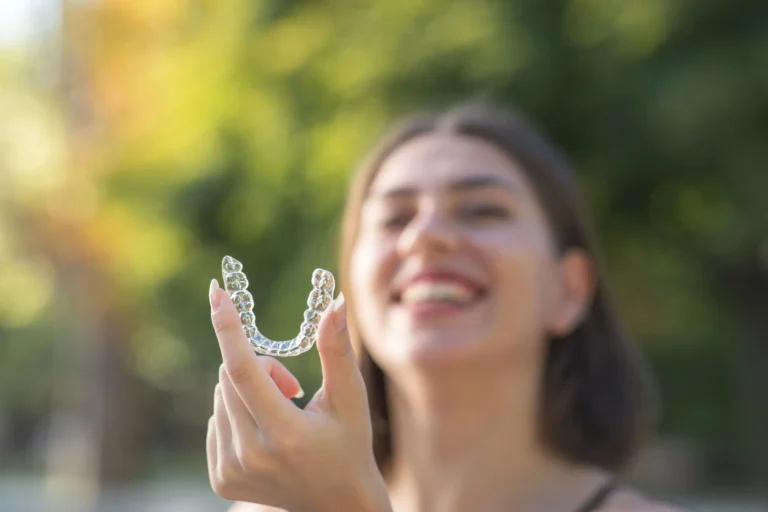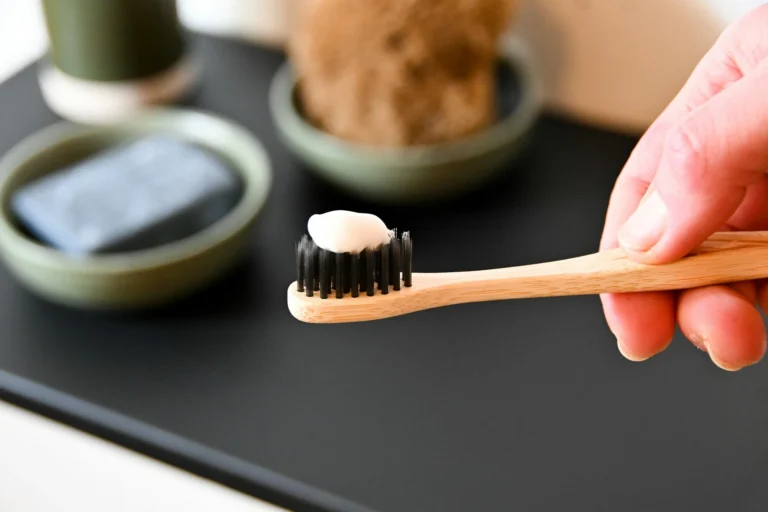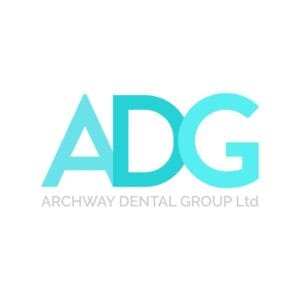What is dental plaque?
How to Get Rid of Plaque? But first, what is a dental plaque? Dental plaque is a soft, sticky biofilm that continuously forms on the surface of your teeth and gums. It’s made up of bacteria, saliva, and food particles, and while it’s initially colourless, it can become yellowish or visible if not regularly removed. Every time you eat or drink — especially sugary or starchy foods — the bacteria in plaque feed on these sugars and produce acids that begin to erode the protective enamel on your teeth. This is the first step in the development of tooth decay.
Plaque doesn’t just pose a threat to your teeth. It’s also the main cause of gum disease. As it accumulates along the gumline, it triggers an immune response that leads to gum inflammation, bleeding, and eventually gingivitis. If left untreated, this can progress to periodontitis, a serious infection that damages the soft tissues and bone supporting your teeth.
What makes plaque particularly dangerous is how quickly it can harden into tartar — also known as calculus — especially in areas where brushing and flossing are more difficult, such as behind the molars or near dental restorations. Once hardened, tartar can only be removed by a dentist or hygienist using specialised tools, and its presence makes it easier for even more plaque to accumulate.
Daily removal of plaque is essential not just for your oral health, but also for your overall health. Research has shown links between chronic plaque build-up and increased risks of cardiovascular disease, diabetes complications, and other systemic conditions due to the inflammation it causes.
At Archway Dental Group, we help patients manage and prevent plaque through personalised hygiene plans, modern technology like AirFlow cleaning, and education on home care techniques. Addressing plaque early helps avoid more invasive treatments later — and keeps your smile healthier, fresher, and brighter for the long term.
👉 Learn more about dental hygiene treatments at Archway Dental Group
How to know if you have plaque on your teeth
Knowing how to identify plaque on your teeth is essential for maintaining your oral health. Because plaque is usually colourless and soft, it often builds up silently — without causing any pain or immediate discomfort. This makes it easy to overlook until more noticeable issues arise, such as gum inflammation or visible staining. However, recognising the early signs of plaque can help you take timely action and prevent more serious dental problems.
Here are the most common indicators that plaque may be accumulating:
- A fuzzy, filmy, or rough sensation on your teeth when you run your tongue across them — particularly first thing in the morning or after meals
- Persistent bad breath (halitosis) even after brushing and using mouthwash, often caused by bacteria trapped in the plaque
- Red, tender, or swollen gums, especially if they bleed when brushing or flossing — a clear sign that plaque is irritating your gum tissue
- Yellowish or creamy deposits near the gumline or between teeth, which may become more visible over time
- Discolouration or dark staining in areas that are harder to reach, often near the molars or around existing dental work
- A feeling of tightness or discomfort along the gum margins, which could indicate plaque-related inflammation
In some cases, early plaque build-up may not show any visible symptoms at all. This is why routine dental check-ups and professional hygiene appointments are so important — they allow your dentist or hygienist to detect and remove plaque before it hardens into tartar or begins to cause irreversible damage.
At Archway Dental Group, we use disclosing gels and advanced scanning tools when necessary to highlight plaque and help patients improve their brushing technique. We also provide guidance on how to monitor your own oral health at home and identify the earliest signs of plaque.
👉 Book a plaque check-up with our hygiene team
How to get rid of plaque at home
Learning how to get rid of plaque at home is one of the most valuable steps you can take to maintain long-term oral health. While professional cleanings are essential for removing hardened tartar, your daily routine plays a vital role in preventing plaque build-up before it becomes a problem. The key is not just brushing — but brushing correctly and consistently, supported by a complete hygiene strategy.
Here are the most effective ways to remove plaque at home:
- Brush your teeth thoroughly twice a day, for at least two full minutes each time. Use a soft-bristled or electric toothbrush with fluoride toothpaste, and make sure to clean all tooth surfaces — including the inner, outer, and chewing areas. Focus especially on the gumline, where plaque tends to accumulate unnoticed.
- Floss daily to remove plaque and food particles from between your teeth, where brushes simply can’t reach. Without flossing, you miss cleaning about 40% of the tooth surface, allowing bacteria to thrive in interdental spaces.
- Use an antibacterial mouthwash to reduce the number of bacteria in your mouth. A daily rinse helps reach areas your toothbrush and floss might miss, giving your plaque-control routine an extra layer of defence.
- Minimise sugary and acidic foods and drinks, especially between meals. Bacteria in plaque feed on sugars and release acids that weaken enamel and irritate gums. Frequent snacking without brushing accelerates this process.
- Stay hydrated by drinking water throughout the day, especially after eating. Water helps rinse away residual sugars and neutralises oral pH, creating a less hospitable environment for plaque-forming bacteria.
- Chew sugar-free gum after meals if you can’t brush. This stimulates saliva flow, your mouth’s natural defence mechanism against plaque. Saliva contains enzymes and minerals that help wash away bacteria and strengthen enamel.
You can also improve plaque control by:
- Using a tongue scraper to remove bacteria from the tongue surface
- Switching to plaque-disclosing tablets to visually track where you’re missing during brushing
- Replacing your toothbrush or brush head every 3 months, or sooner if the bristles are worn
At Archway Dental Group, we educate every patient on how to develop a personalised home care routine. Small adjustments in technique or product choice can significantly improve plaque removal and gum health — reducing your risk of decay, tartar build-up, and gum disease.
👉 Download our free daily plaque control checklist
Why professional cleaning is essential
Many patients wonder why, despite brushing and flossing daily, they’re still advised to have regular dental cleanings. The truth is, even the most diligent home care cannot fully eliminate plaque — particularly in areas that are difficult to reach, such as below the gumline, behind the back molars, or around dental restorations. Over time, plaque that is not completely removed hardens into tartar (calculus), a substance that adheres tightly to the teeth and can no longer be removed with a toothbrush or floss.
This is where professional cleaning becomes essential.
At Archway Dental Group, we offer advanced hygiene protocols specifically designed to eliminate both plaque and tartar effectively and comfortably. Here’s what makes professional cleaning so valuable:
- AirFlow Technology: This modern system uses a controlled stream of air, warm water, and fine powder particles to gently yet thoroughly remove biofilm, surface stains, and soft plaque. It is highly effective around orthodontic appliances, dental implants, and tight gum pockets, ensuring a deep clean without discomfort.
- Ultrasonic Scalers: These devices use high-frequency vibrations to break down tartar deposits quickly and safely. They allow for efficient scaling with minimal irritation to the gums and enamel, reducing sensitivity and treatment time.
- Tailored Hygiene Treatments: Every mouth is different. Our dental hygienists personalise each cleaning session based on your gum health, plaque risk, and previous dental history, ensuring that the care you receive is both gentle and thorough.
But professional cleanings aren’t just about cleaning. They also give your dental team a chance to:
- Examine your gums for early signs of inflammation or recession
- Check the stability of fillings, veneers, and crowns
- Spot weak areas of enamel before cavities form
- Provide guidance on how to improve your daily technique
Routine professional cleanings are your best defence against the long-term effects of plaque, including gum disease, tooth loss, and bad breath. They help maintain not just your oral health, but also your confidence and quality of life.
At Archway Dental Group, we are committed to making your hygiene appointments comfortable, informative, and proactive. Whether it’s your first cleaning in years or part of your regular care plan, our team is here to support your journey to a healthier, plaque-free smile.
👉 Book a hygiene appointment with our team in Archway
What happens if you don’t remove plaque?
Understanding what happens if you don’t remove plaque is crucial for recognising just how important daily care and professional dental visits truly are. Plaque might seem harmless in its early stages — it’s soft, often invisible, and doesn’t cause immediate pain — but when left undisturbed, it becomes a progressive threat to both oral and systemic health.
Here are the most common consequences of untreated plaque:
- Tooth decay: The bacteria in plaque produce acids every time you eat, especially sugary or starchy foods. These acids gradually erode the protective enamel, forming cavities. If untreated, decay can reach the dentine and dental pulp, leading to sensitivity, pain, and the need for more complex treatments.
- Gingivitis: This is the earliest stage of gum disease. When plaque builds up along the gumline, it causes inflammation, redness, swelling, and bleeding when brushing or flossing. At this stage, the damage is still reversible with proper hygiene and professional care.
- Periodontitis: If gingivitis is ignored, it can evolve into periodontitis, a more serious and irreversible condition. In periodontitis, the bacteria spread deeper below the gumline, damaging the connective tissues and bone that support your teeth. Over time, this leads to gum recession, tooth mobility, and even tooth loss.
- Persistent bad breath and bad taste: Accumulated plaque harbours bacteria that produce foul-smelling sulphur compounds. This can lead to chronic halitosis (bad breath) and an unpleasant taste that brushing alone won’t resolve.
- Tartar build-up: Plaque that is not removed within 24 to 72 hours can begin to calcify into tartar (calculus). Tartar is rough and porous, making it easier for more plaque to stick to the teeth. It can only be removed with professional instruments and contributes to ongoing gum irritation.
- Systemic health implications: Numerous studies have linked untreated plaque and gum disease to serious health conditions such as heart disease, stroke, diabetes complications, and respiratory infections. Chronic inflammation from oral bacteria can enter the bloodstream, affecting your general well-being far beyond your mouth.
Failing to remove plaque can turn what is a simple, preventable issue into a complex, chronic condition. That’s why we encourage patients to take a proactive approach with consistent oral hygiene at home, paired with regular professional hygiene visits.
At Archway Dental Group, we support every patient with tailored hygiene advice and preventive treatments that make plaque management easier and more effective — helping you preserve your natural teeth, protect your gums, and support your long-term health.
👉 Read more about gum disease prevention and treatment
How to prevent plaque from forming again
Understanding how to prevent plaque from forming again is just as important as knowing how to remove it. Once plaque is gone, keeping it from returning should become part of your daily routine — because prevention is not only easier than treatment, it also protects your long-term oral health and saves you from unnecessary discomfort and complications.
Plaque forms continuously, every single day. As soon as you finish brushing, bacteria begin rebuilding the biofilm. This is why consistency and technique matter more than intensity or force. Here’s how to make your efforts count:
- Stick to a consistent daily hygiene routine: Brush your teeth thoroughly for two minutes twice a day, using fluoride toothpaste and a soft-bristled or electric toothbrush. Floss daily to remove plaque where your brush can’t reach — especially between teeth and along the gumline.
- Replace your toothbrush or brush head every 3 months: Worn bristles lose their effectiveness and may even damage the gums if frayed. A fresh brush ensures proper plaque removal with each use.
- Use plaque-disclosing tablets occasionally: These tablets temporarily stain plaque to make it visible, helping you identify which areas you’re missing during brushing. They’re especially useful for children or anyone working on improving their technique.
- Avoid frequent snacking, especially on sugary or starchy foods. The more often you eat between meals, the more fuel bacteria have to produce the acids that lead to plaque formation. If you do snack, rinse with water afterwards or chew sugar-free gum to stimulate saliva production.
- Limit sticky and refined carbohydrates, which cling to teeth and feed bacteria. Try to eat tooth-friendly snacks like raw vegetables, cheese, or nuts that promote a neutral pH and help cleanse the mouth naturally.
- Stay hydrated: Drinking water throughout the day supports saliva flow, your mouth’s first defence against plaque. Saliva naturally washes away food debris and helps neutralise acids.
- Visit your dentist and hygienist regularly: Even if your teeth feel clean, only a professional can assess areas you may be missing, remove early tartar deposits, and monitor gum health. Early intervention prevents long-term damage.
At Archway Dental Group, we don’t believe in one-size-fits-all care. We offer tailored oral hygiene plans based on your individual plaque risk, dental history, and lifestyle. Whether you’ve had braces, restorations, gum issues, or simply want to maintain a healthy smile, our team is here to support you with realistic, effective strategies that fit into your life.
Preventing plaque is a lifelong habit — and with the right guidance, it becomes second nature.
👉 Ask us about our preventive care programmes
Conclusion: How to get rid of plaque for good
So, how do you get rid of plaque for good? The answer is not found in a single action, but rather in the combination of consistent daily habits, professional care, and long-term prevention. Plaque is a natural part of the oral environment — but when managed correctly, it doesn’t have to become a threat to your health or your smile.
To effectively stay ahead of plaque:
- Brush and floss daily with proper technique and the right tools
- Avoid high-sugar diets and acidic drinks that feed harmful bacteria
- Stay hydrated and use plaque-disclosing tools to improve your routine
- Visit your dental team regularly for cleanings, check-ups, and guidance
What’s important to remember is that plaque is predictable and preventable. When neglected, it leads to problems that are more difficult (and invasive) to treat. But when taken seriously, plaque can be easily managed — keeping your teeth clean, your gums healthy, and your breath fresh.
At Archway Dental Group, we believe in empowering every patient to take control of their oral health with confidence. Through a combination of modern technology, a gentle and personalised approach, and ongoing education, we help you maintain a healthy smile at every stage of life.
Whether you’re experiencing signs of plaque build-up or simply want to improve your oral hygiene routine, our team is here to support you with evidence-based care and a friendly, no-pressure environment.
📍 Visit us at 34 St John’s Way, Archway, London, N19 3RR
📞 Call us on 020 7272 6818 | 📧 Email: reception@archwaydentalgroup.co.uk
👉 Book your hygiene appointment today and discover how to get rid of plaque — and keep it away for good.

